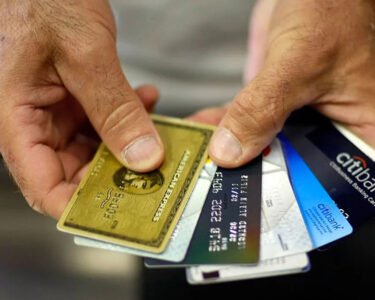How we tackled payday loans
Re: “Predatory loans squeeze local economies in Texas,” by Laura Becerra, March 1 Opinion.
Thank you for this op-ed on the scourge of payday loan lenders in Dallas. Several years ago, I met with a Parkland employee who was trapped in several payday loans. I reviewed the schedule on one of her loans. She owed $1,269 and was making payments of $280 twice a month. After 14 payments ($3,920), her amount owed went down to $811. These are unconscionable terms that lower-income workers accept when they get hit with an unexpected expense that then traps them in a downward spiral of debt.
Several years ago, we established a program to buy Parkland employees out of these rotten deals. We secured a one-time $60,000 donation to create a backstop fund. Then, working with our credit union, we established a process whereby it will loan them the money to pay the loan in full and then pay back the credit union at a non-predatory 6% rate. If an employee defaults on the loan, the backstop fund will cover it so the credit union has no risk on a loan it probably would not otherwise issue.
In the eight years since we made the program available, we have rescued 88 employees. Fourteen are actively paying back loans. The $60,000 fund has proven to be sufficient as we have experienced only $5,500 in unpaid loans.
We found a wonderful partner in the Community Lending Center of Dallas, which will provide small-dollar emergency loans to higher-credit-risk, working individuals at an interest rate of 21%. But for those who were unaware or just did not take advantage of this option, we will buy them out of their payday loan.
While we may not be able to eliminate the age-old practice of preying upon the poor or those who lack financial training, we have found this program to be a difference-maker for the employees we have been able to reach.
Fred P. Cerise, Dallas
President and CEO, Parkland Health and Hospital System
Buy into clean hydrogen
As companies and government entities grapple with an evolving energy landscape, we must prioritize innovation that fosters continued leadership. One solution with a bright future is the production of environmentally friendly clean hydrogen.
Last week, the Treasury Department closed its comment period on rules for the 45V Clean Hydrogen Production Tax Credit proposal under the Inflation Reduction Act. Unfortunately, the current proposal discourages investment in carbon capture and other carbon emission reduction methods, and undermines scores of natural gas hydrogen projects that are already in planning phases.
The North Texas Commission weighed in, encouraging the department to take an all-of-the-above approach, recognizing the impact these decisions will have on our 13-county region and beyond. While the pieces may be in place for hydrogen here in Texas, key to the industry’s success will be policy that empowers states to use their resources for innovation like clean hydrogen.
By taking advantage of all technologies for clean hydrogen production, we can maintain our energy security, incentivize emissions reductions, grow our economy and improve our environment for generations to come.
Chris Wallace, Irving
President and CEO, North Texas Commission
Global warming didn’t cause fires
Re: “Reduce greenhouse gases,” by Jonathan Light, Monday Letters.
Light, a climate lobbyist, blames global warming for record Panhandle wildfires, which burned during late-winter snow and not in peak summer heat as one might expect. Fact is, wildfires occur any time of year but mostly in dry weather.
According to the Environmental Protection Agency, ocean warming leads to heavier precipitation, which would help to lessen the frequency and severity of wildfires. Another fact is that 4 out of 5 wildfires are man-made, but not from fossil fuels. The leading causes are downed or sparking power lines, fireworks, cigarettes, campfires, arson and illegal trash burning.
Wildfires are better prevented by regular power line maintenance and the Smokey the Bear campaign than pushing “clean fuel alternatives” like electric vehicles, which increase power transmission loads and stress the grid.
Ken Ashby, Dallas
Leaving millions on the table
Re: “Texas fails its hungry kids — $450M would have helped feed low-income children over summer,” by Sharon Grigsby, Wednesday Metro & Business column.
I volunteer at the North Texas Food Bank. NTFB distributes food to over 500 partner agencies in North Texas. There are around 640,000 food-insecure individuals in North Texas, including 1 in 6 children. When I read that the state of Texas declined $450 million to provide food for low income children, it made me sad. It also made me angry.
I am grateful for the NTFB and the several hundred volunteers who show up every day to help provide meals for the people who are food insecure in our community. But the NTFB and other private organizations who help feed our community can not keep up with the demand on their own.
With the state’s $30 billion surplus, it shouldn’t have been a problem for leaders in Austin to find enough money to fund the Health and Human Services Commission. That way, they could have accepted the $450 million from the federal government for the summer Electronic Benefit Program (EBT) for Children. It is like saying, I must decline $450 million because I don’t have a bank account.
You would think our pro-life Christian leaders in Austin would care enough about our state’s children to accept the EBT money. Who turns down $450 million? Sadly, they didn’t try to get it.
Richard Bach, Garland
We welcome your thoughts in a letter to the editor. See the guidelines and submit your letter here. If you have problems with the form, you can submit via email at letters@dallasnews.com




